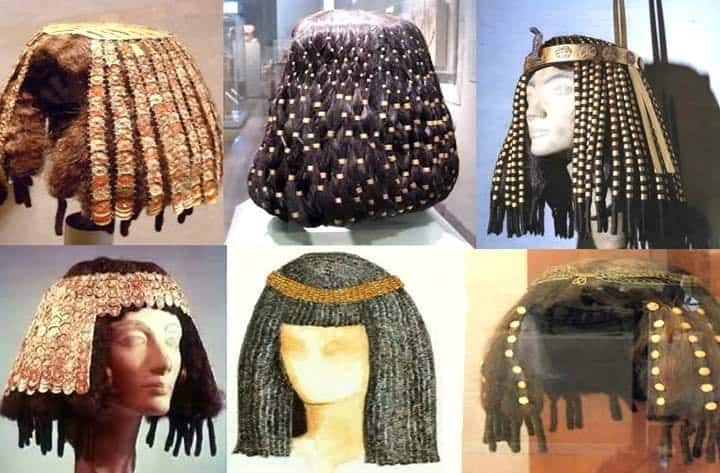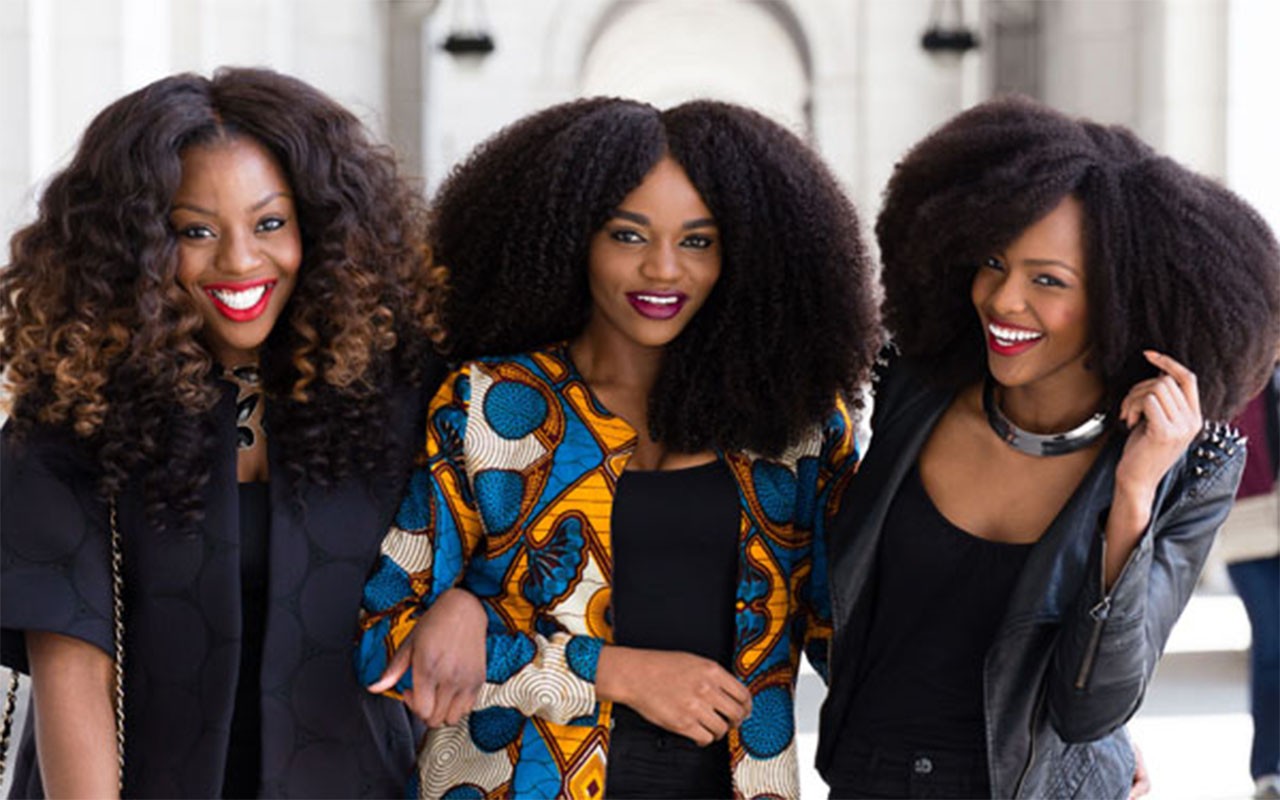A Tapestry of Reasons: Exploring the Significance of Wigs in African Women’s Lives
Related Articles: A Tapestry of Reasons: Exploring the Significance of Wigs in African Women’s Lives
Introduction
With great pleasure, we will explore the intriguing topic related to A Tapestry of Reasons: Exploring the Significance of Wigs in African Women’s Lives. Let’s weave interesting information and offer fresh perspectives to the readers.
Table of Content
A Tapestry of Reasons: Exploring the Significance of Wigs in African Women’s Lives

The practice of wearing wigs, a seemingly simple act of adornment, holds a profound significance for African women. It is a complex tapestry woven from cultural, historical, social, and personal threads, reflecting a dynamic interplay of identity, self-expression, and practicality. To understand why African women choose to wear wigs, one must delve into the nuanced reasons that drive this choice, recognizing its multifaceted nature and its deep-rooted connection to their lives.
Cultural and Historical Roots:
Wigs have long been a part of African culture, with historical evidence suggesting their use dating back centuries. In various African societies, wigs served diverse purposes, from signifying status and power to expressing religious beliefs and cultural identity. For instance, among the Yoruba people of Nigeria, elaborate hairstyles adorned with wigs were a symbol of wealth and social standing. Similarly, in ancient Egypt, wigs were worn by both men and women, signifying social status and serving practical purposes like protecting the scalp from the harsh sun.
These historical practices have evolved over time, but the significance of wigs remains deeply embedded in the cultural fabric of many African communities. The tradition of elaborate hairstyles, often requiring intricate weaving and braiding, has been passed down through generations, with wigs serving as a practical and versatile tool for achieving these styles.
The Impact of Colonization and Hair Politics:
The arrival of colonialism in Africa brought with it a shift in beauty standards. European ideals of beauty, often characterized by straight, long hair, were imposed on African populations, leading to the devaluation of natural African hair textures. This resulted in the widespread adoption of chemical relaxers and straightening treatments, often damaging hair and contributing to a sense of self-consciousness about natural hair.
This cultural shift, fueled by colonial influences and perpetuated by media representations, created a complex relationship with hair for African women. Wigs, offering a means to achieve desired styles without compromising the health of their natural hair, emerged as a powerful tool for navigating these societal pressures.
Self-Expression and Identity:
Beyond practicality, wigs hold immense importance for African women as a form of self-expression and identity. They allow for a diverse range of styles, from sleek and sophisticated to bold and vibrant, reflecting individual personality and cultural influences. Wigs can be used to experiment with different looks, express creativity, and even celebrate cultural heritage.
For many African women, wearing a wig is a form of reclaiming their identity and challenging societal norms. It allows them to embrace their individuality and express themselves freely, defying the limitations imposed by Eurocentric beauty standards. Wigs become a canvas for self-expression, allowing women to showcase their unique style and celebrate their African heritage.
Practical Considerations:
The practicality of wigs is another significant factor influencing their popularity. They offer a convenient solution for managing hair, particularly for women with natural hair textures that require extensive styling. Wigs can be styled quickly and easily, providing a low-maintenance option for busy schedules. They also offer protection for natural hair, shielding it from the damaging effects of heat styling and environmental factors.
Moreover, wigs can be a practical choice for women experiencing hair loss due to medical conditions or other factors. They provide a sense of confidence and normalcy, allowing women to maintain a sense of self-esteem and style despite hair loss.
The Evolution of Wigs:
The wig industry has witnessed a significant evolution in recent years, with a growing demand for high-quality, realistic, and diverse options. This shift reflects a growing awareness of the importance of inclusivity and representation in the beauty industry.
Modern wigs are made from a variety of materials, including human hair, synthetic fibers, and blends. They come in a wide range of styles, colors, and textures, catering to diverse preferences and hair types. This evolution has made wigs more accessible and versatile, further contributing to their popularity among African women.
FAQs about African Women and Wigs:
1. Why do African women wear wigs?
African women wear wigs for a multitude of reasons, including cultural heritage, self-expression, practicality, and navigating societal pressures related to hair.
2. Is it cultural appropriation to wear a wig?
Wearing a wig is not cultural appropriation as long as it is done respectfully and with an understanding of its cultural significance. It is important to avoid perpetuating harmful stereotypes or appropriating cultural elements without acknowledging their origin and meaning.
3. Are all African women wearing wigs?
No, not all African women wear wigs. The choice to wear a wig is a personal one, influenced by individual preferences, cultural background, and personal circumstances.
4. What are the different types of wigs worn by African women?
African women wear a variety of wigs, including lace front wigs, full lace wigs, glueless wigs, and synthetic wigs. The type of wig chosen depends on the desired style, budget, and personal preferences.
5. How are wigs viewed in African culture?
Wigs hold diverse meanings in African culture, ranging from practical tools for styling to symbols of identity and self-expression. Their significance varies across different communities and individuals.
Tips for Choosing and Wearing Wigs:
1. Research and choose a reputable vendor: Ensure the wig is made from high-quality materials and is properly constructed.
2. Consider your hair type and desired style: Choose a wig that complements your natural hair texture and desired look.
3. Invest in proper wig care: Regularly clean and condition your wig to maintain its appearance and longevity.
4. Experiment with different styles: Don’t be afraid to try new looks and express your individual style.
5. Embrace your natural hair: Wigs should not be seen as a replacement for embracing your natural hair texture and celebrating its beauty.
Conclusion:
The practice of wearing wigs is a complex and nuanced aspect of African women’s lives, reflecting a tapestry of cultural, historical, social, and personal reasons. From embracing cultural traditions and navigating societal pressures to expressing individuality and achieving practical benefits, wigs hold significant meaning for African women. By understanding the multifaceted reasons behind this choice, we can appreciate the profound impact wigs have on their lives and the diverse ways they contribute to their sense of identity, self-expression, and empowerment.








Closure
Thus, we hope this article has provided valuable insights into A Tapestry of Reasons: Exploring the Significance of Wigs in African Women’s Lives. We appreciate your attention to our article. See you in our next article!